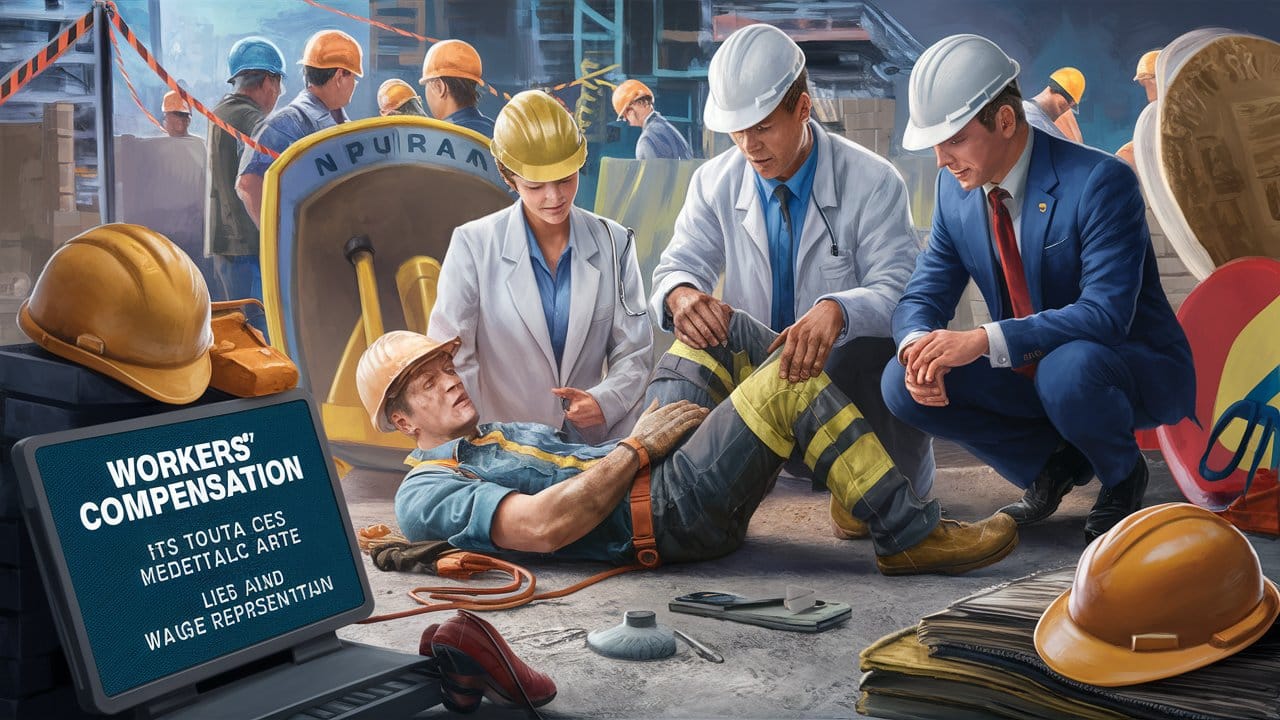If you’ve ever heard the term workers’ compensation insurance but weren’t quite sure what it meant, you’re not alone. It’s one of those concepts that many people know exists but don’t fully understand. Let’s break it down and demystify everything about workers’ compensation insurance in a friendly, easy-to-grasp way.
Understanding Workers’ Compensation Insurance
Workers’ compensation insurance, often shortened to “workers’ comp,” is a type of insurance policy specifically designed to protect both employees and employers. It provides benefits to employees who suffer from work-related injuries or illnesses and, at the same time, helps employers avoid legal complications related to workplace accidents.
In short, it’s like a safety net for the workplace.

Why Does Workers’ Compensation Insurance Exist?
Accidents can happen anywhere, even in the safest work environments. Workers’ compensation insurance ensures that when something does go wrong, employees get the support they need without unnecessary delays. For employers, it’s a way to comply with legal requirements and protect their business from potential lawsuits.
Key Reasons for Workers’ Comp Insurance:
- Financial Support for Injured Workers: Covers medical expenses, rehabilitation costs, and lost wages.
- Legal Protection for Employers: Helps prevent costly lawsuits related to workplace injuries.
- Mandatory Compliance: In most states, it’s legally required for businesses with employees.
How Does Workers’ Compensation Insurance Work?
Let’s look at how the process unfolds when an accident occurs:
- Employee Reports the Incident: The first step is for the injured employee to notify their employer about the injury or illness.
- Employer Files a Claim: The employer submits a claim to their workers’ compensation insurance provider.
- Medical Evaluation: The employee may be required to visit an approved healthcare provider for treatment and evaluation.
- Benefits Are Issued: If the claim is approved, the employee receives benefits, such as payment for medical bills and compensation for lost wages.
It’s important to note that workers’ comp benefits are typically provided regardless of who is at fault—the employer or the employee.
What Does Workers’ Compensation Insurance Cover?
Workers’ compensation insurance is quite comprehensive, covering a variety of situations. Here’s a breakdown:
1. Medical Expenses
This includes everything from emergency room visits to surgeries and ongoing physical therapy. For example, if an employee breaks their arm while on the job, workers’ comp would cover the medical costs.
2. Lost Wages
If the injury or illness prevents the employee from working, the policy compensates for a portion of their lost income. This ensures the injured worker can focus on recovery without financial stress.
3. Rehabilitation Services
In cases where employees need help returning to work, workers’ comp can cover vocational training or rehabilitation programs.
4. Death Benefits
Tragically, workplace accidents can sometimes result in fatalities. Workers’ comp provides financial support to the deceased employee’s dependents, such as spouses and children.
Who Needs Workers’ Compensation Insurance?
If you’re wondering whether your business needs workers’ comp, the answer is almost always yes. Here’s why:
- Small Businesses: Even with a handful of employees, accidents can happen. Workers’ comp protects your team and your business.
- Medium to Large Enterprises: The legal and financial stakes are higher with more employees, making workers’ comp essential.
- High-Risk Industries: Construction, manufacturing, and healthcare industries are particularly prone to workplace injuries, so having workers’ comp is a must.

What Happens If an Employer Doesn’t Have Workers’ Comp Insurance?
Skipping workers’ compensation insurance isn’t just risky; it’s often illegal. Employers who don’t have coverage may face:
- Hefty Fines: State penalties can be severe.
- Lawsuits: Injured employees can sue the employer directly.
- Business Closure: Non-compliance could result in a forced shutdown of operations.
Bottom line? It’s not worth the gamble.
How Much Does Workers’ Compensation Insurance Cost?
The cost of workers’ comp varies depending on factors like:
- Industry: High-risk industries have higher premiums.
- Number of Employees: More employees mean higher coverage requirements.
- Claims History: A history of workplace injuries can increase rates.
On average, businesses pay $0.75 to $2.74 per $100 of payroll. While it may seem like an extra expense, the protection it provides is invaluable.
Benefits of Workers’ Compensation Insurance
Investing in workers’ comp insurance comes with significant advantages:
For Employees:
- Peace of mind knowing they’ll be supported if injured.
- Timely access to medical care and wage compensation.
For Employers:
- Legal compliance and protection from lawsuits.
- Improved employee morale by showing care and responsibility.
How to Get Workers’ Compensation Insurance
Getting covered is easier than you might think. Here are some steps to help you:
- Research Providers: Look for insurance companies specializing in workers’ comp.
- Compare Quotes: Don’t settle for the first offer; shop around.
- Understand State Requirements: Each state has unique rules, so make sure you’re compliant.
- Purchase a Policy: Once you find the right provider, finalize your coverage.
Final Thoughts
Workers’ compensation insurance is more than just a legal requirement—it’s a way to foster a safer, more supportive workplace. Whether you’re an employer or an employee, knowing how it works and what it covers can make a world of difference.
So, if you’ve been putting off getting workers’ comp insurance or learning about it, now’s the time to act. Protect your team, your business, and yourself by embracing this essential safety net.



